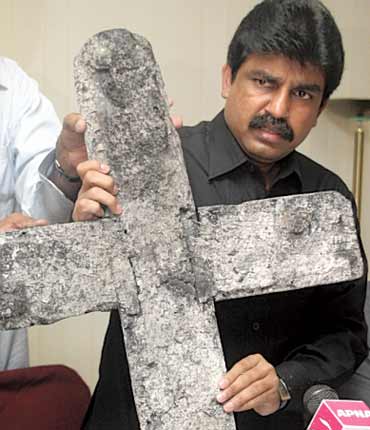Shahbaz Bhatti: Politician murdered in Pakistan for his Christian beliefs

Your support helps us to tell the story
From reproductive rights to climate change to Big Tech, The Independent is on the ground when the story is developing. Whether it's investigating the financials of Elon Musk's pro-Trump PAC or producing our latest documentary, 'The A Word', which shines a light on the American women fighting for reproductive rights, we know how important it is to parse out the facts from the messaging.
At such a critical moment in US history, we need reporters on the ground. Your donation allows us to keep sending journalists to speak to both sides of the story.
The Independent is trusted by Americans across the entire political spectrum. And unlike many other quality news outlets, we choose not to lock Americans out of our reporting and analysis with paywalls. We believe quality journalism should be available to everyone, paid for by those who can afford it.
Your support makes all the difference.When he was sworn in as Pakistan's minister for minorities in November 2008, the first time the position had been made a member of the cabinet, Shahbaz Bhatti said he was accepting the post to help the "oppressed, down-trodden and marginalised and to send a message of hope to the people living a life of disappointment, disillusionment and despair".
He went on: "Jesus is the nucleus of my life, and I want to be his true follower through my actions by sharing the love of God with poor, needy and suffering people of Pakistan."
For the three years that he served as a government minister, the first time a Christian had such a position in Pakistan, Bhatti was good to his word. In an environment in which civil society saw itself squeezed and where militants and fundamentalists extended their dark influence, the minister was an outspoken opponent of the country's controversial blasphemy laws, tightened during the rule of the military dictator Zia ul-Haq.
It is not as if he was not aware of the danger he was putting himself in. He had received so many death threats that weeks before his murder, shot dead by gunmen outside his mother's home in Islamabad, Bhatti had made a recording which he left with the BBC and Al-Jazeera in the event of his death. "I will die to defend their rights," he said on the recording. "These threats and these warnings cannot change my opinions and principles."
Born in Lahore in 1968, Bhattigrew up Khushpur, a village in thesuburbs of Faisalabad in the country's Punjab province. He was one ofsix children; his father, Jacob Bhatti, was a teacher. Though his familywas Catholic, he said it was notuntil he was a teenager that he fully embraced Christianity, deciding that he wanted to help his community, which represents less than twoper cent of the population. He never married.
While still at the University of Punjab in Lahore, where he obtained a masters in public administration, Bhatti helped found the Christian Liberation Front (CLF), an organisation that battled for the rights not just of Christians but other minorities.
The timing could barely havebeen better; a year later, Zia al-Haq tightened laws put in place duringthe years of British rule and established the death penalty for thosefound guilty of blasphemy. It was asentence that has so far never been carried out, but a number of people have been murdered after beingconvicted or else while awaiting trial. One person who had been convicted and was later taken to hospital from jail for medical treatment was killed by the policeman supposed to be guarding him.
Several years later, Bhatti was among the founders of another group fighting for the rights of minorities and promoting interfaith harmony, the All Pakistan Minorities Alliance (APMA). Among those also involved in the project was Group Captain Cecil Chaudhry, an activist and a hero from the 1965 Indo-Pak war. Bhatti was elected head of the organisation and had the role of liasing with the government.
He also joined the Pakistan's People's Party of Benazir Bhutto. Those who had any dealings with him, remembered him as friendly, humble and enthusiastic.
Bhatti never backed away fromcontroversy. In 2009 he spoke outin defence of Christians attacked inviolence that erupted in the Punjab town of Gojra and a year later hecame to the defence of Aasia Noreen, a Christian woman who was convicted of blasphemy and sentenced to death after allegedly insulting the Prophet Muhammad, a charge she has always denied.
Other than Bhatti, among the few high-profile politicians who came to the defence of the farm worker was Salmaan Taseer, the governor of Punjab. As it was, Taseer was killed, by a member of his security detail, less than two months before Bhatti was himself assassinated.
Clement Shahbaz Bhatti, politician: born Lahore, Pakistan 9 September 1968; died Islamabad 2 March 2011.
Join our commenting forum
Join thought-provoking conversations, follow other Independent readers and see their replies
Comments